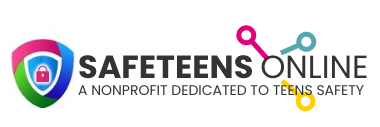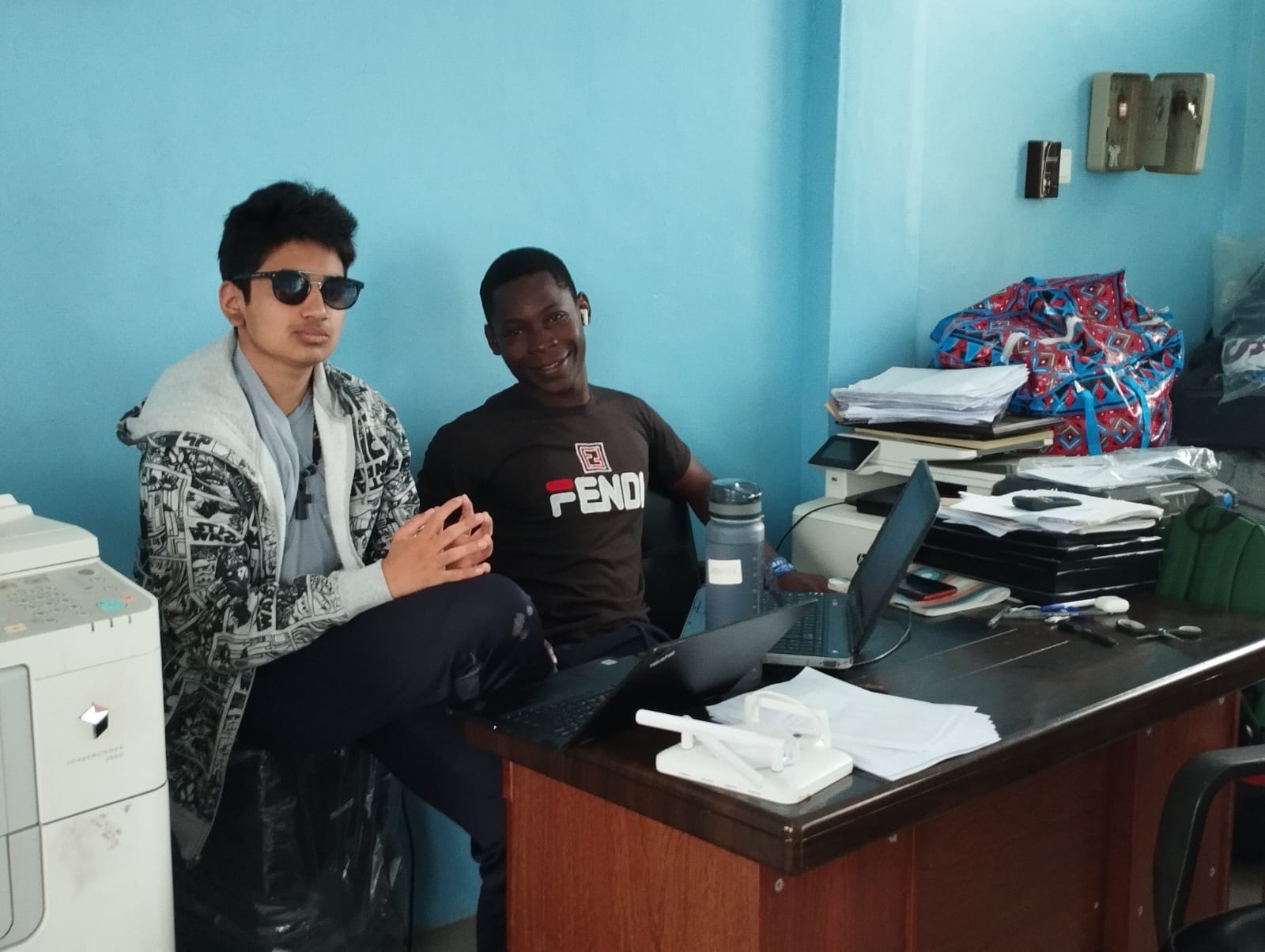Hello, I am Vivek Chaudhuri, a 10th grader at McNair Academic High School in Jersey City, New Jersey. I recently had the opportunity to attend the CIEE high school study abroad program for three weeks in Accra, Ghana. In that time, we volunteered for many hours at a school named Billa Mahmood Memorial Future Leader School. On the last few days of our trip, I was fortunate enough to be able to connect with the principal of the school and interview the computer teacher, Sir Godwin Etadji. I thought it would be a great way to give people in first-world countries like the US a glance at digital life in a different environment while also trying to make a connection between the school and SafeTeensOnline.
I started the interview by asking him about the digital courses the school provided. To my surprise, the school actually had a small digital course curriculum; however, due to funding issues, they were not able to properly teach it. In fact, the school did not even have WiFi, and in order to teach the kids, the amazing teachers had to use tools like hotspots. However, what came as a bigger shock was how little students had explored the internet. Though some of the older kids had hotspots where they could broaden their knowledge, their internal use was mainly focused on communication and research, a mere fraction of internet use compared to the majority of us. Though this was shocking, it was inspiring to hear the student’s resilience in the face of limited resources. Though it is clear that most of the students lacked a deep understanding of the complex digital landscape due to low levels of digital literacy.
After some serious conversation, I wanted to take the interview in a different direction. I am sure that for a lot of us, artificial intelligence, specifically generative AI like ChatGPT and Copilot, has become a core part of our daily lives. However, I came with the assumption that third-world countries like Ghana would not know about such tools, but to my surprise, I realized that they used such tools as well. Though Sir Godwin estimated 95 percent were not very aware of the US of AI (which in large part is due to the lack of internet access amongst the kids), he himself and some of his students were actually relatively well versed in AI. This was one of the more eye-opening parts of the interview for me, if even with such little internet access, the students were able to access complex parts of the web, helping me realize that with improved connectivity, there is real potential for innovation and growth in Ghana’s future.
Going back to the topic, we once again began the discussion of the kids online literacy. As the interview went on, lack of financial support proved to be a significant barrier to these kids digital education. I brought up the global COSI scores, which showed Ghana as one of the lower-ranked countries in terms of digital safety. Sir Godwin had a swift response to this and emphasized the importance of understanding internet safety as students go out into the world, specifically the ability to protect themselves and their privacy online. He called for more attention on this matter, suggesting the importance of more resources going into making technology more accessible to encourage students to pursue careers in technology.
Reflecting on this interview, I feel more inspired to advocate for digital equality and safety. Students, regardless of their heritage, country, and socioeconomic status, should have the ability to access tools and resources to navigate the ever-growing digital world safely and effectively. I hope, with the help of SafeTeensOnline, we can help Billa Mahmood Memorial Future Leader School with better internet access and a more comprehensive digital curriculum. Over time, we hope to spread across Ghana, changing one school at a time, for the benefit of all those in the country and eventually the world!

